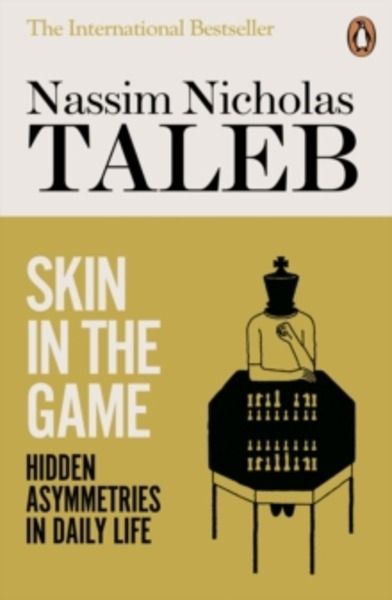Skin in the Game
Hidden Asymmetries in Daily Life

Editorial Penguin UK
Fecha de edición febrero 2019 · Edición nº 1
Idioma inglés
EAN 9780141982656
304 páginas
Libro
encuadernado en tapa blanda
Dimensiones 196 mm x 132 mm
Resumen del libro
Why should we never listen to people who explain rather than do? Why do companies go bust? How is it that we have more slaves today than in Roman times? Why does imposing democracy on other countries never work? The answer: too many people running the world don't have skin in the game. In his inimitable, pugnacious style, Nassim Nicholas Taleb shows that skin in the game applies to all aspects of our lives. It's about having something to lose and taking a risk.
Citizens, lab experimenters, artisans, political activists and hedge fund traders all have skin in the game. Policy wonks, corporate executives, theoreticians, bankers and most journalists don't. As Taleb says, "The symmetry of skin in the game is a simple rule that's necessary for fairness and justice, and the ultimate BS-buster," and "Never trust anyone who doesn't have skin in the game.
Without it, fools and crooks will benefit, and their mistakes will never come back to haunt them".
Biografía del autor
Nassim Nicholas Taleb (Líbano, 1960) ha dedicado su vida a estudiar los problemas de la suerte, la incertidumbre, la probabilidad y el conocimiento. Ensayista, investigador y financiero, es miembro del Instituto de Ciencias Matemáticas de la Universidad de Nueva York, ha sido profesor de Ciencias de la Incertidumbre en la Universidad de Massachusetts y en la London Business School y, además, es profesor distinguido de Ingeniería de Riesgos en la Escuela Tandon de Ingeniería de la Universidad de Nueva York. <br> Ha escrito más de setenta artículos académicos sobre estadística, filosofía, ética, economía, asuntos internacionales y finanzas cuantitativas, todos ellos en torno a la noción de riesgo y probabilidad. <br> Es autor de varios libros, entre ellos, Jugarse la piel, Antifrágil, ¿Existe la suerte? y El cisne negro, publicados por Paidós, que se han convertido en éxitos internacionales. Además, sus obras han sido traducidas a cuarenta y un idiomas.








